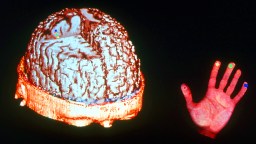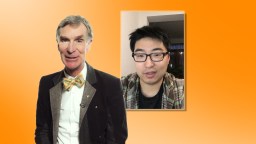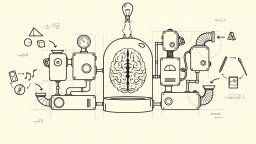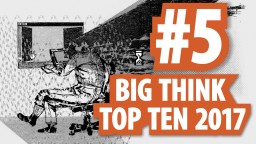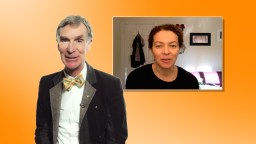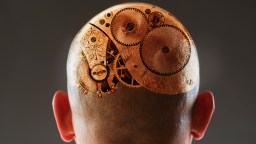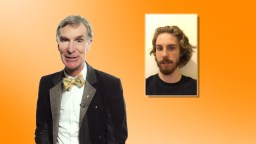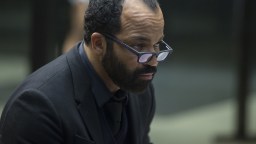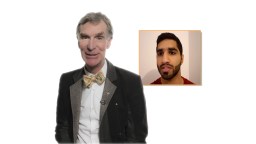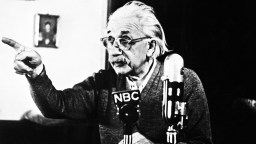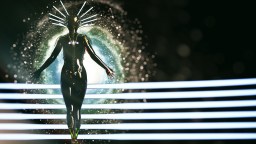Videos
All Stories
In comedy there is always the temptation to go for the easy jokes – but now, more than ever, comedians have to challenge themselves.
▸
3 min
—
with
Here are two cutting-edge neuroscience technologies that may enable us to treat conditions like blindness, epilepsy and Alzheimer’s.
▸
4 min
—
with
What if the vision wasn’t just to have politicians who are science literate, but actual scientists running the joint – would it be any better than it is now?
▸
5 min
—
with
Despite decades of research, there is no reliable vaccine for malaria. Dr. Philip Eckhoff lays out the strategies and collaborations required to eradicate this disease and the half a million lives it takes each year.
▸
5 min
—
with
We are what we are because of genes; we are who we are because of memes. Philosopher Daniel Dennett muses on an idea put forward by Richard Dawkins in 1976.
▸
7 min
—
with
Jeffrey Sachs, from the Rust Belt himself, shares his thoughts on Trump’s economic plans and shares some red flags to watch for as new policy proposals surface.
▸
5 min
—
with
There’s a trillion-dollar underground economy hiding in plain sight, says Steven Kotler, and it can be measured in dopamine.
▸
3 min
—
with
Exterior mapping – like GPS maps – is part of daily life, but in the coming decades prepare to have your private, interior spaces mapped to assist with future technologies.
▸
4 min
—
with
Scott Aukerman, the co-founder of ‘Between Two Ferns’, developed humor early on as a way disarm bullies. He knows from experience that, in comedy, your intentions really matter.
▸
3 min
—
with
Mathematics professor Po-Shen Loh has created Expii, a free education tool that democratizes learning by turning your smartphone into a tutor.
▸
4 min
—
with
Can’t the U.S. be a little more like Scandinavia in its ethos? Fixing inequality in America will take more than economic reform, it will also need a cultural shift.
▸
5 min
—
with
Time is this wild fourth dimension in nature, says Bill Nye. We depend on its neat measurements for survival – but subjectively it continues to elude us.
▸
5 min
—
with
The human mind is like a Turing machine, says Daniel Dennett. It’s made up of unthinking cogs – but when combined in the right order, their motion gives rise to consciousness.
▸
7 min
—
with
Astro Teller’s innovation tip? Fail fast. Here’s how he cultivates and rewards intellectually honest failures, and helps his team get comfortable with the idea.
▸
5 min
—
with
We cannot rule out the possibility that a superintelligence will do some very bad things, says AGI expert Ben Goertzel. But we can’t stop the research now – even if we wanted to.
▸
7 min
—
with
Here’s one use for all that harvested personal data that you might not object to. Algorithms and big data are no longer just for profit; they can bring us self-awareness and growth.
▸
4 min
—
with
Nothing reflects the complex mood of our era like gaming, says Nato Thompson, where the establishment has worked its way into the anti-establishment ethos.
▸
2 min
—
with
Evolutionary biologists generally agree that humans evolved from a bacteria-like ancestor, rather than a viral one. But what if we’re chemically connected?
▸
5 min
—
with
One day this century, a robot of super-human intelligence will offer you the chance to upgrade your mind, says AGI expert Ben Goertzel. Will you take it?
▸
5 min
—
with
When you take off a virtual reality headset, you don’t remember seeing things, you recall experiencing them, says Kevin Kelly. VR will create a world of amazing opportunity – for us and for advertisers.
What should have killed Trump’s political career, only made him stronger. Matt Taibbi marvels at Trump’s immunity to scandal and baffling resilience to normal media strategies.
▸
3 min
—
with
Dr. Larry Brilliant played a key role in eradicating smallpox from the world – so what are the biggest dangers humanity faces now? Brilliant rates politics as on-par with infectious disease.
▸
5 min
—
with
America has a split personality, and the country it wants to be is constantly being foiled by the country that it is. In an ideal world, says Jelani Cobb, there is a way of using power that does not entail the oppression and exploitation of other people. But how do we get there?
▸
3 min
—
with
Journalists were once outsiders looking in, says Gay Talese, but today their proximity to Washington makes them myopic; they’d be wiser to disperse and keep their eyes on the horizon.
▸
6 min
—
with
If we could jump 50 years into the future, what will our world look like? Flying cars? Hologram phones? Bill Nye sees two technological paths ahead – and we’re in the fork between them at this very moment.
▸
4 min
—
with
In 1905, Albert Einstein’s mother thought he was a genius, his sister thought he was a genius, his father thought he was a genius – but that was about it, says author David Bodanis.
▸
5 min
—
with
In a world afraid of embarrassment, asking dumb questions is a super power, says Tim Ferriss. It takes a secure intellect to risk looking silly, but the rewards are there for the taking.
▸
4 min
—
with
We’re in an epidemic of mental illness and in an epidemic of misinformation about mental illness. The myth that America is “overmedicated” regarding antidepressants only furthers the stigma that stops people from seeking help.
▸
4 min
—
with
We are on the verge of something meaningful and incredible with emergent artificial intelligence, says Toni Lane Casserly. But which way will humanity steer it? As with any system, it’s up to us.
▸
4 min
—
with
The Trump-Russia dossier reads as though the inside of the Kremlin is a high school cafeteria where you can overhear amazing state secrets all the time, says journalist Matt Taibbi – that’s just not the way the Russians operate.rn
▸
3 min
—
with

